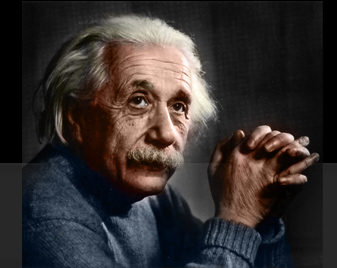Here’s to the Crazy Ones

There is something truly remarkable about the people and ideas that defy the norm. Time and again, we find that the greatest dreamers, innovators, and inspirations are those who don’t fit into conventional molds. In fact, many individuals who have achieved extraordinary things were often labeled as highly abnormal. This raises an important question: how normal do we really want to be?.
In our society, we often label those who deviate from the norm or are “abnormal” as having special needs, a term that can carry a negative connotation. When I was a kid, these individuals might have been referred to as the “short bus kids.” As a society, we often struggle with how to support these individuals, but we overlook a crucial point—research shows that many people with special needs possess unique brilliance. What if we could harness that brilliance and recognize that it often appears abnormal?
Steve Jobs is a prime example of someone who didn’t fit the traditional mold. While I may not agree with everything he did or stood for, there’s no denying that he was a true innovator who drastically changed the landscape of technology. In 1997, Steve Jobs launched a commercial for Apple’s Think Different campaign, titled “The Crazy Ones.” If you haven’t seen it, or if you need a refresher, it’s worth watching. The message is powerful and still moves me every time I see it. Click HERE to watch it.
As leaders, we often place such high value on success that we fail to give people permission to be abnormal, do abnormal things, or fail. This pressure can lead people to take the safest route to guarantee success. While this approach can be effective when you just need to get something done, there are times when we need to venture out, challenge the norm, and be willing to fail in the process. It’s important to strike a balance—having everyone constantly challenging the norm without getting things done is impractical, but only ever taking the proven route can stifle innovation.
As an organization, we are committed to celebrating behaviors that are abnormal, crazy, and often lead to failure. Internally, we have what we call the “short bus award.” We hand it out to the team member who, in seeking to innovate, experiences glorious failure. We do this because we want to celebrate those bold enough to follow a path and seek a solution, even when it may not fit the typical mold or they may fail.
As we looked at this internal culture and our external message to our clients, we realized that we also needed to bring this culture forward further. This is where we came up with the Do IT Different tagline that you see throughout our website and messaging. In the same way that Steve Jobs wanted to challenge people to Think Different we believe that IT needs to be thought of in a different light than it has previously. Our “Do IT Different” tagline is a challenge to ourselves and our clients to look at IT from a different perspective, be willing to challenge long-held beliefs, and come up with innovative ways to align IT with business.
In the IT industry, embracing the unconventional can lead to groundbreaking innovations. By valuing diverse perspectives and encouraging out-of-the-box thinking, we can drive progress and create solutions that truly stand out. It’s important to remember that brilliance often looks different and that by fostering an environment where unconventional ideas are welcomed, we can unlock the full potential of our teams.
Ultimately, the goal is to strike a balance between structure and creativity. By doing so, we can drive innovation and growth, pushing the boundaries of what’s possible while staying true to our core values and mission.
What are you doing to challenge the mold and innovate? What blockades do you have to failure?
I’ll leave you with the text from the Crazy Ones campaign, written by Rob Siltanen:
“Here’s to the crazy ones. The misfits. The rebels. The troublemakers. The round pegs in the square holes. The ones who see things differently. They’re not fond of rules. And they have no respect for the status quo. You can quote them, disagree with them, glorify or vilify them. About the only thing you can’t do is ignore them. Because they change things. They push the human race forward. And while some may see them as the crazy ones, we see genius. Because the people who are crazy enough to think they can change the world, are the ones who do.”
Tags
Let’s Connect
We would love to hear from you. If you have questions about how we may be able to work together, click the button below, fill out the form and we will connect to explore the future together.
